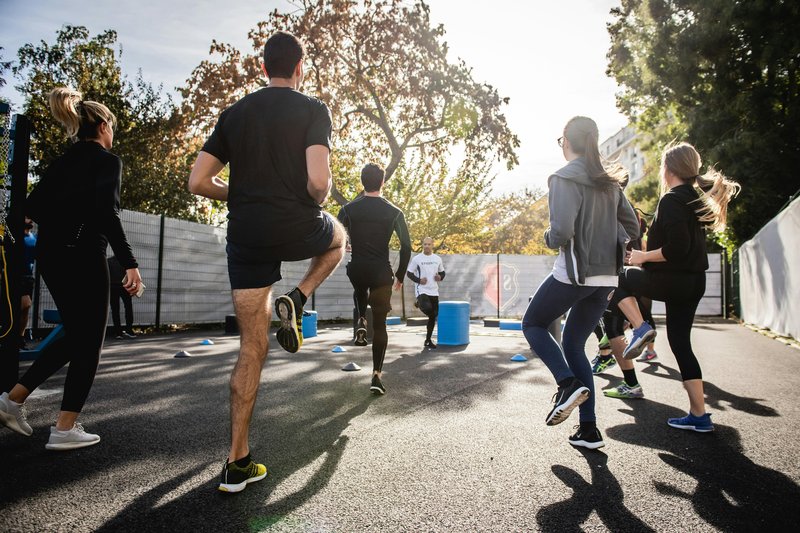🔥 What Happens to Your Testosterone When You Skip Breakfast (And Why It Matters)
In recent years, more men have turned to intermittent fasting as a strategy not just for weight loss, but to enhance hormone production and vitality. But does intermittent fasting boost testosterone? That’s exactly what we’re about to explore—backed by science, real-world experience, and a few surprises.
Understanding Intermittent Fasting
Intermittent fasting (IF) involves cycling between periods of eating and fasting. Popular methods include the 16:8 protocol, 5:2 fasting, or alternate-day fasting. While it’s often used for fat loss, fasting also influences metabolic pathways, including those that govern hormone production.
When you fast, your body enters a state of hormonal adjustment. Insulin levels drop, human growth hormone (HGH) increases, and cellular repair begins. These shifts may help prime the body for increased testosterone output when done correctly and consistently.
How Testosterone Works in the Male Body
Testosterone is the primary male sex hormone, responsible for muscle growth, libido, mood regulation, and overall male vitality. Production occurs mainly in the testes and is regulated by signals from the brain, particularly the hypothalamus and pituitary gland. Luteinizing hormone (LH), released from the pituitary, tells the testes to produce testosterone.
When this signaling pathway is disrupted—due to obesity, poor sleep, chronic stress, or aging—testosterone levels can plummet, leading to fatigue, lower sex drive, and reduced muscle mass.
The Link Between Fasting and Testosterone
Does intermittent fasting boost testosterone directly? Research is still emerging, but early findings show promise. Short-term fasts (12 to 24 hours) have been shown to increase LH levels in men, which can lead to temporary surges in testosterone. Longer fasts may trigger hormonal adaptations that improve testosterone receptor sensitivity.
One animal study published in the journal *Endocrinology* found that fasting increased testosterone sensitivity in rats. While animal data isn’t always applicable to humans, the biological mechanisms at play are worth noting.
Insulin, Body Fat, and Hormonal Health
Chronic high insulin levels suppress testosterone. One of the main benefits of intermittent fasting is improved insulin sensitivity. This creates a metabolic environment favorable to testosterone production. Moreover, fasting leads to fat loss, especially visceral fat—the type that converts testosterone into estrogen through the enzyme aromatase.
Lowering body fat means less estrogen, and that supports higher testosterone. It’s a chain reaction: fasting → lower insulin → less fat → less estrogen → higher testosterone.
What Real Men Are Saying
On forums like Reddit and YouTube, men who incorporate IF consistently report:
- More frequent and firmer morning erections
- Heightened libido and sexual confidence
- Increased energy, especially during workouts
- Improved focus, mood stability, and mental sharpness
While anecdotal, these reports align with what we’d expect from higher testosterone levels.
Common Mistakes That Kill the Benefits
It’s not just about when you fast—it’s about how you eat when you’re not fasting. Many men make the mistake of:
- Consuming ultra-processed junk in their eating window
- Not eating enough protein or healthy fats
- Overtraining without recovery
- Undersleeping (a huge testosterone killer)
To maximize fasting benefits, your eating window should be packed with nutrient-dense foods like eggs, grass-fed meat, avocados, olive oil, cruciferous vegetables, and zinc-rich options like oysters.
Complementary Testosterone Hacks
Fasting works best when combined with other testosterone-boosting habits:
- Eat foods that boost natural testosterone
- Get 7–9 hours of deep, uninterrupted sleep
- Strength train 3–5x per week using compound lifts
- Spend time outdoors and expose skin to sunlight
Stacking strategies multiplies the effect, giving you a more noticeable transformation.
Fasting vs. Synthetic Hormone Replacement
Intermittent fasting is a natural method that allows your body to optimize testosterone production on its own terms. Unlike testosterone replacement therapy (TRT), there are no injections, long-term shutdown of natural production, or expensive prescriptions.
However, if you have clinically low testosterone, speak to your doctor before attempting fasting or skipping meals—especially if you’re on medication or have other hormonal issues.
What to Expect in 30 Days
If you fast for 30 days using a 16:8 or 18:6 method, you may notice:
- Decreased belly fat
- Improved sex drive
- Better sleep quality
- Stable energy without afternoon crashes
- Firmer, more consistent erections
Combine that with strategic supplementation and you could unlock serious physical and mental gains.
Interlinked Resources to Deepen Your Journey
Need help lasting longer in bed? Read our tactical guide on how to stop losing erection during sex. Also, if you’ve been feeling down lately, you might explore how depression and ED are connected.
Final Takeaway: Is Intermittent Fasting Right for You?
Fasting can absolutely support testosterone—but only if you’re consistent and strategic. No method works in isolation. If you want results, you must combine IF with quality sleep, real food, strength training, and minimal stress.
For men serious about reclaiming their energy, sex drive, and confidence, intermittent fasting is one of the most underrated tools out there.
Myths About Fasting and Testosterone
There are several myths floating around online that discourage men from trying intermittent fasting. Let’s debunk some of the most common ones:
- Myth 1: Fasting causes muscle loss. Truth: When done properly with adequate protein and resistance training, fasting can actually preserve lean muscle mass while burning fat.
- Myth 2: Skipping breakfast lowers testosterone. Truth: There’s no scientific evidence supporting that breakfast is essential for hormone production. In fact, many men experience hormonal improvements by delaying their first meal.
- Myth 3: You need to eat every 2–3 hours to “keep testosterone high.” Truth: Frequent eating often leads to insulin spikes and lower metabolic flexibility. Fasting trains your body to optimize fuel and hormones more efficiently.
How Stress and Cortisol Impact Your Fasting Results
Chronic stress raises cortisol—a hormone that counteracts testosterone. While fasting itself isn’t inherently stressful, combining IF with sleep deprivation, overtraining, or mental burnout can increase cortisol and blunt your gains.
Make sure your lifestyle supports recovery. Incorporate walking, meditation, sauna sessions, or even cold showers to keep stress levels in check. Balance is key if you want sustainable hormone health.
Signs That Fasting Is Working for You
You don’t need a lab test to see signs of testosterone improvement. Common indicators that intermittent fasting is helping include:
- Spontaneous erections during the day or night
- Reduced anxiety and more assertive decision-making
- More motivation to exercise and socialize
- Increased body hair or beard growth (in some cases)
Signs You May Be Overdoing It
While fasting can be powerful, too much can backfire. Watch out for:
- Low libido or erectile issues after extended fasting
- Poor sleep or early morning waking
- Irritability, low mood, or apathy
- Decline in workout performance or delayed recovery
If any of these occur, reduce fasting frequency, increase healthy carb intake, and prioritize rest.
The Best Time to Fast for Testosterone Optimization
Most testosterone is produced during sleep and peaks in the early morning. Fasting protocols that align with your natural circadian rhythm tend to work better. Consider the following:
- 16:8 Protocol: Fast from 8 PM to 12 PM the next day. Eat between 12 PM and 8 PM.
- Early Time-Restricted Feeding: Fast from 4 PM to 8 AM. This may improve insulin sensitivity but could be socially restrictive.
Experiment to see what fits your lifestyle and recovery needs best.
Bonus: Sexual Health and Hormonal Synergy
Many men overlook how fasting affects not just testosterone but the whole hormonal orchestra—dopamine, HGH, serotonin, insulin, cortisol. When these work in harmony, men experience:
- Heightened sexual desire and performance
- Greater confidence and less anxiety in social settings
- Stronger emotional resilience and focus at work
As your body recomposes itself under fasting and strength training, you may also notice a positive shift in how women perceive you. There’s an energy shift that comes from hormonal balance—it’s primal, and it’s real.
Still Doubting? Consider This
Many men spend hundreds on supplements, yet ignore their diet patterns. Intermittent fasting is free. It’s simple. And when combined with testosterone-friendly habits, it can transform how you look, feel, and perform—in bed and in life.
Fasting isn’t starvation. It’s strategic eating. And it’s a way to signal to your body: “It’s time to optimize.”
More Resources to Explore
If you’re unsure whether your sex drive is healthy or not, take a moment to read what is a healthy sex drive for men to understand your natural baseline. And if you’re frequently losing your erection mid-sex, this practical article can help: how to stop losing erection during sex.
The Bottom Line
Does intermittent fasting boost testosterone? Yes—but it works best when integrated into a broader lifestyle. It’s not a standalone fix, but when you use it intelligently, the results can be life-changing.
Whether you’re chasing higher testosterone, better sexual performance, or just a leaner body, fasting can help you take back control.
📊 Intermittent Fasting vs. Other Testosterone Boosters
| Method | Natural | Requires Prescription | Improves Hormone Sensitivity | Supports Fat Loss |
|---|---|---|---|---|
| Intermittent Fasting | ✅ | ❌ | ✅ | ✅ |
| TRT (Testosterone Replacement Therapy) | ❌ | ✅ | ❌ | ⚠️ Depends |
| Supplements | ✅ | ❌ | ⚠️ Varies | ⚠️ Varies |
❓ Frequently Asked Questions
Does intermittent fasting lower testosterone if done long-term?
Not necessarily. If fasting is combined with nutrient-dense eating, proper sleep, and strength training, long-term fasting can actually maintain or enhance testosterone levels. However, extreme calorie restriction can have the opposite effect.
Can I fast and still build muscle and boost testosterone?
Yes. Strategic eating windows (like 16:8) paired with progressive overload in the gym can preserve muscle mass and even improve hormonal profiles. Just make sure you hit your protein and calorie targets during your eating window.
 Can Fasting Really Boost Testosterone Levels? Here’s What Science Says visual metaphor – confidence and energy – via supremepenis.com
Can Fasting Really Boost Testosterone Levels? Here’s What Science Says visual metaphor – confidence and energy – via supremepenis.com








